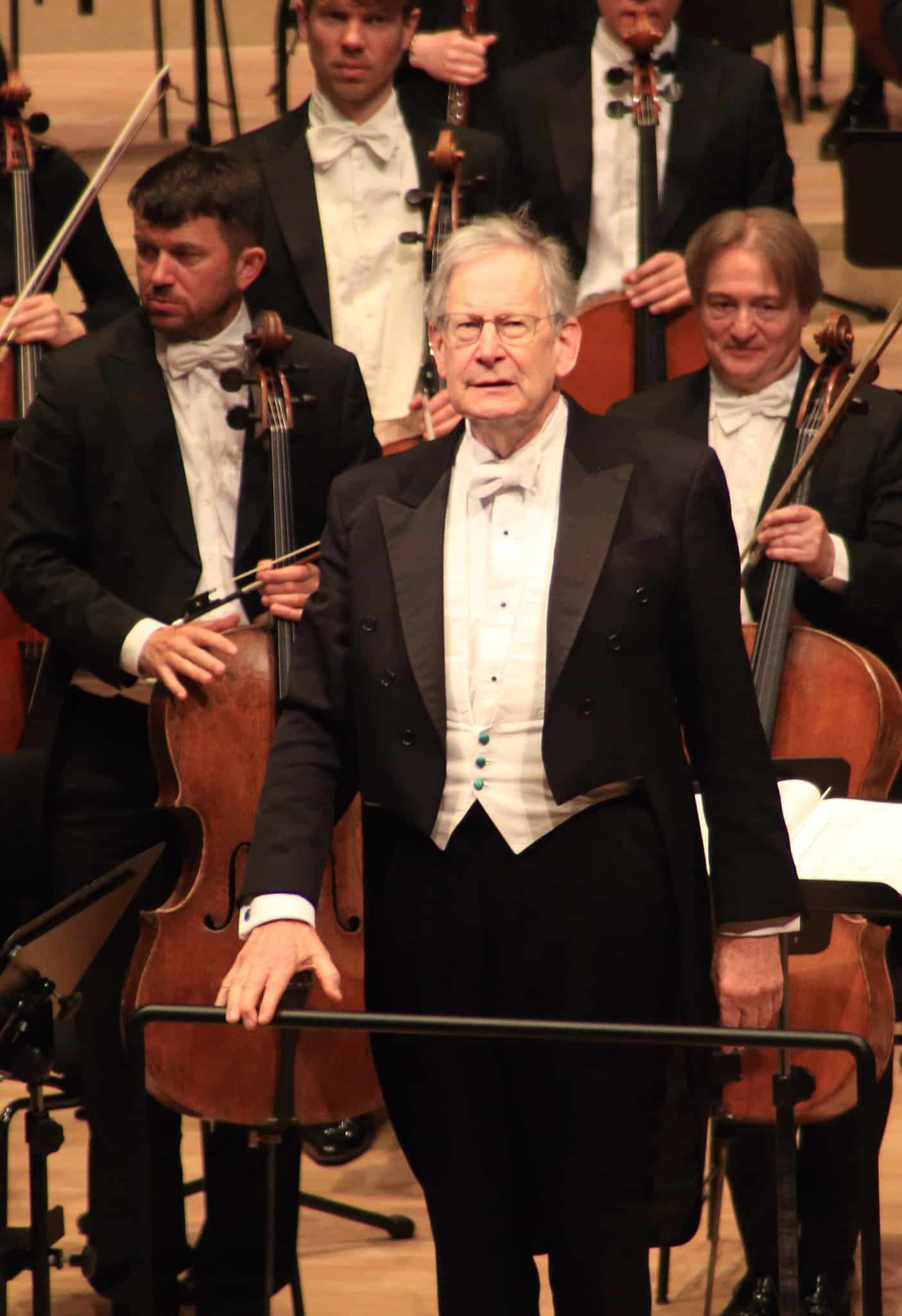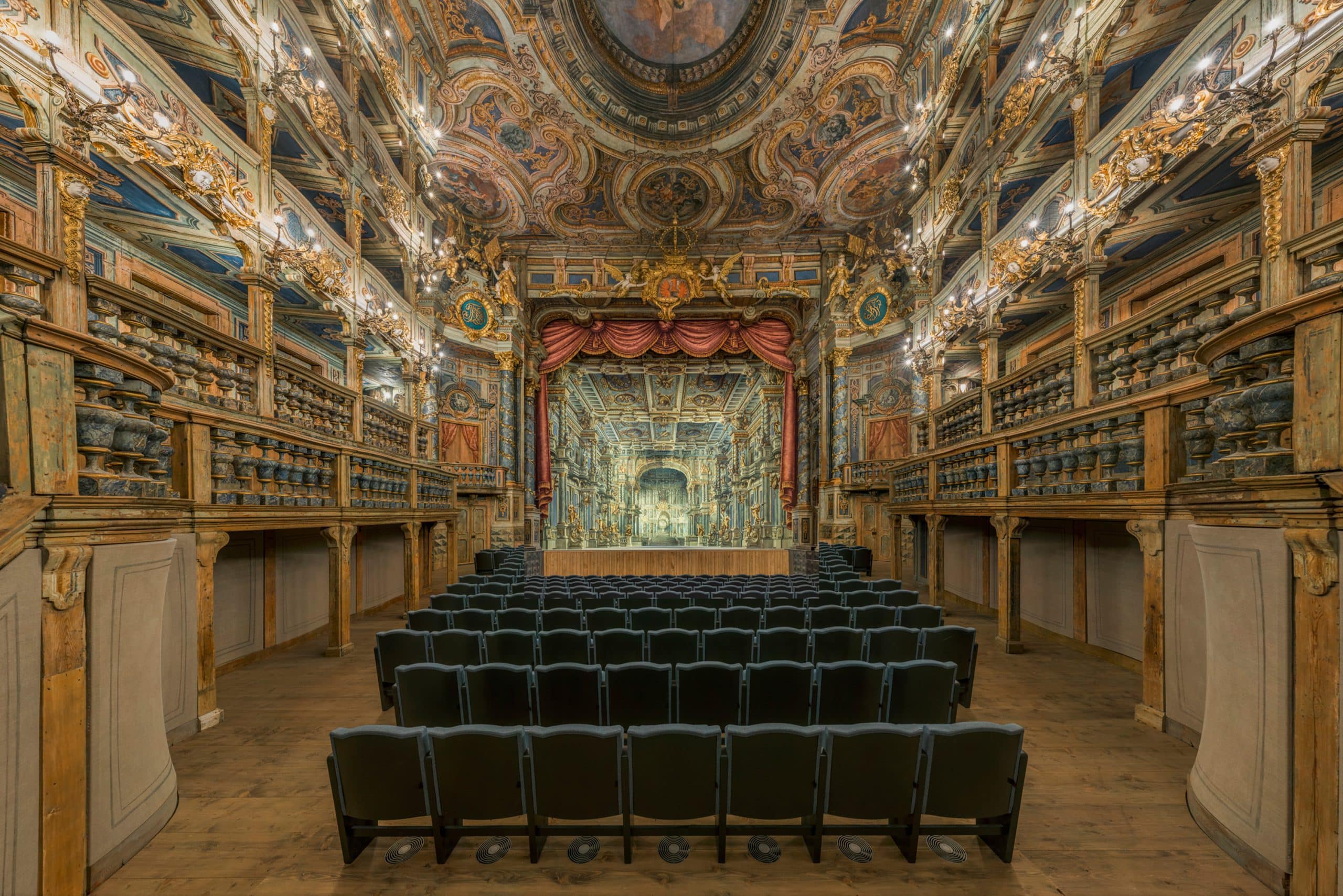UK classical musicians ‘cannot make ends meet’
mainA survey of 285 musicians in seven orchestras across the UK has found that 44 percent struggle to pay their bills.
The Musicians Union says average wages have stagnated at around £30,000 a year and musicians are having to take extra jobs in order to pay for their instruments, insurance and other working costs, quite aside from their living costs.
Here’s a BBC report.
As a point of reference, here’s what musicians earn in German orchestras.






It’s a shame the BBC journalist reporting on this doesn’t see fit to make comparisons or at least some journalistic activity to better illustrate the press release they appear to be regurgitating. For what it’s worth, the salary cited is above the UK average, and above the average for the area in question, so it’s hardly “breadline”.
I’m a tutti orchestral player and I would love to earn £30k. My heart sank when I saw that figure in the BBC article as I anticipated the ‘call that the breadline’ comments. Of course many people are suffering on low-wages and in terrible working conditions, this shouldn’t be happening. However, that doesn’t alter the fact that highly-skilled music professionals should reasonably expect to be paid well enough to have a comfortable life. Why not gun for an executive of a bank or an insurance company? We orchestral musicians bring so much to society. Even if you dislike classical music, at least we do no harm – unlike bankers, politicians et al
Exactly, the problem is; because of our slavery to the business world,
which not only dictates how we have to live, but has also taken away our capacity and sensitivity to explore the really wonderful things: the arts, classical music…
then the 5% of us who are left to appreciate these things just isn’t enough to finance it..
And we can see it all around us: ‘without culture we all become beasts…’
Sorry, that won’t fly. “Without culture we become beasts”. There’s plenty of ways of getting the wrong culture. Ask Europeans.
Ian, no-one is ‘gunning for’ musicians here. This is the musicians themselves, via their union, complaining about being “on the breadline”. As far as I can see from the MU’s own figures, there isn’t a single orchestra in the UK (having musicians as employees) which pays any full-time player a salary below the national average salary. The MU talking about this as ‘breadline’ is unlikely to win much sympathy from the general public when they see that every full-time orchestral makes more than the national average as a starting salary – plus increments, special payments, higher salaries for length of service, and so on.
I don’t pretend that orchestral musicians are well-paid or wealthy, and certainly in the UK are lower-paid than perhaps some of their US or German equivalents, but I’m not convinced that this sort of campaign helps anyone.
I’m very sympathetic with your plight. But your comment on “terrible working conditions” and “suffering on low pay”; please read George Orwell’s “The Road to Wigan Pier” to learn about REAL, appalling social and working conditions of miners in the north of England during the Depression. That will put your comment into some perspective.
Sue. When I mentioned ‘poor pay’and ‘terrible working conditions’ I was referring to people other than musicians who are even worse off! Visiting food banks etc. NOT orchestral players. I come from a northern mining community myself. But thanks for telling me all about it!
Have you actually read Orwell’s book? It’s very revealing in so many ways, about the people and the values which kept them going despite depredations. Along came the war and most of them finally got work!! In many ways the book is reminiscent of Dickens – certainly the writing style is similar.
Today people complain of so much without having a scintilla of historical knowledge.
If you have indeed read The Road to Wigan Pier, then it seems that you have completely misunderstood what it has to say.
Firstly, the book does examine appalling social conditions in the industrial North – in the 1930s, in a country that had only the vestiges of a Welfare State and very few laws to combat poor working conditions and slum landlords. However, it also examines how better-paid working class families live. It examines their cultural, as well as their economic, lives. This, it should be clearly stated, is only one half of the book and is, in a sense, not what the book is about at all.
The second half of the book concerns itself with how these ills are to be remedied – in Orwell’s belief – through Socialism, and how those who might be expected to benefit strongly from this will, for what could be construed as emotional reasons, vote against their own self-interest.
This part of the book describes in some detail the ‘genteel poverty’ in which many middle class people lived at that time – including Orwell’s close family in Oxfordshire (he attended Eton on a scholarship). This is deplored as much as the conditions of the working poor.
The mining family’s needless purchase of Condensed Milk (as a treat) is juxtaposed with the needless purchase of ornaments and bibelots by the middle classes. The manner in which the middle class fetishise the working classes, the manufacturing industries and the life of the ‘good earth’ is also examined.
Orwell is arguing that though, through Socialism, almost all but the very richest benefit, the middle classes may well vote against their own self-interest in the mistaken belief that the one thing that separates them from those they, in reality, fear and despise, will be obliterated.
It’s a powerful argument, especially as it was being made directly to the middle class denizens of the Left Book Club. It is NOT an apologia. It’s concerned as much with spiritual, emotional and cultural poverty as it is material poverty (hence the observation that buying expensive condensed milk wastes income that could be spent on better food).
The book aims to convince the unconvinced of the value of Socialism. The clue is in the title. To build a road to the to the ultimate in middle class sophistication: a pier.
In Wigan.
WHERE THERE IS NO PIER.
If you play Motorhead you make millions, if you play Bruckner you make millions only if you are H v K!
“at least we do no harm – unlike bankers, politicians et al”
Pity you didn’t stop after “harm”. A lot of people work in banking, and I think such generalisations are lazy and unfair.
I can think of lots of professions where some members are not up to scratch – teaching, for instance, as anyone who has had to cope with the product of their efforts can testify.
Pity you didn’t stop after “scratch”
Nevertheless, in the US at least, it’s fair to say that the banking industry has been responsible for a lot of harm to a lot of people. Ditto for the political profession.
The trouble with that comment is that the Left always blames conservatives for those troubles, instead of really looking at who was working the levers.
Bravo.
“At least we do no harm”? Ahem, have you really not seen any of the recent news stories about abusive classical musicians: people whose freedom to abuse was conferred upon them solely because of their supposed “genius” or “artistry”? Have you never met an orchestral musician who’s been bullied by their colleagues?
You can find that anywhere – medicine, clergy, pop industry, religion, politics. It’s not an intrinsic part of being a classical musician.
Then, of course, there is the large scale abuse from “geniuses” and “artists” in Rotherham, Rochdale etc.
£30,00 a year, gosh how wonderful. Try living on 11k.
Can’t resist virtue signalling, can you?
The word “breadline” might have been unwise, but nobody is perfect. It’s entirely reasonable for highly qualified people to expect a decent salary and £30k is not a fortune, taking expenses into account. People without experience or qualifications have to make do with less. That’s just the way it is.
It’s hard to disagree with you here.
It is not unreasonable for highly qualified people to expect a decent salary and 30k is not a fortune. However, highly qualified and experienced people in other fields also have to make do with less so perhaps that’s just the way it is!
Everyone is entitled to believe they deserve more recompense for their work but at the end of the day the market pays the going rate irrespective of what people think they are worth so some realism may be in order.
The “market” doesn’t operate in any meaningful way in a profession which is subsidised. Has the “market” really decided that Chris Evans is worth £2.2m from the BBC, funded out of a TV Tax? I don’t call that a market.
I’m not saying I’m against subsidy in all its forms, just making an observation.
Here’s a solution. Shell out £278m on a concert hall for a city which already has two. There’ll be no musicians to fill it, but that’s a minor detail….
I assume you’re referring to London where I doubt if £30k applies to the non BBC orchestras. I believe they are self governing and don’t pay salaries as such.
However, I notice that for the recent Tippett/Mahler/Rattle concert at the Barbican Hall, the concert platform appears to have at least two extensions at the front, resulting in loss of seating. And that’s without a choir.
The place is clearly not fit for purpose.
Only a small proportion of professional musicians earn enough to live on.
The general public’s attitude about this varies pretty widely; even the same individual can hold several attitudes at once:
• admiration of the person for “following your passion,” combined with
• contempt that the person has deliberately chosen such a low-paying profession, combined with
• professed love of music and its importance to our society and the development of our children, combined with
• dismissal of the skill level, dedication, education, and discipline required to perform music at a high level (previously cited as reasons for the importance of learning music), combined with
• amazement if a person or ensemble makes any claim to deserving better pay than whatever they make now, quickly shifting to disgust &/or resentment (whether the offended individual’s tax dollars are involved or not) at the insatiable greed of people who should be above mere financial concerns, or who should be grateful for the chance to do the thing they love.
Depending on the context and the questions you ask, many music lovers will express all of these opinions over the course of the same day, or even during the same conversation.
Lots of emotion in your points; how about some facts? You’ve spoken to every member of the general public, have you?
Ah yes. I did say I was speaking for every single member of the general public, didn’t I.
You sure did.
These articles require the context of the sums paid to Conductors and soloists (the individuals that perform with these orchestral musicians). In the small to meduim sized enterprises I have spent my career in the senior manager (Managing Director) would earn in the range of 6 times the basic salary of the lowest grade of shopfloor semi-skilled full time staff and 2 times the basic salary of his direct support staff – usually 3 or 4 individuals – sales & marketing, accountant/personnel, Operations. My understanding is that this differential is far greater in our symphony orchestras (which certainly fall into the small to medium sized enterprises category).
Do you (or anyone else reading) have any reliable figures here? The question you ask is the one that’s interesting to me also.
If we look at a full time orchestra that is paying £30K (or less) to full time players. How much is that orchestra paying to their conductor (plus guest conductors) each year. And what is the range of fees it is paying to the soloists for each concert
My orchestra (in the US) pays in the $18k range to full-time rank & file players, and in the $120k range to the music director.
18000 US dollars is considered below the official poverty level for a family. Unofficially it is below the poverty level (by poverty level I mean being able to meet basic household expenses without going into debt) for any single person in any US city if one has to pay market housing costs.
I always think bankers and public servants are paid more than musicians because of the boring nature of their work; it’s a form of compensation!!! “-)
Spoken like someone who’s never sat through a six-hour rehearsal with a terrible conductor in the arse-end of nowhere.
Is this really news? Musicians in London have been complaining for decades – understandably so – that they have to play many, MANY extra services per month to make ends meet.
In California, we have the ‘freeway philharmonic’ circuit. Those people have to do quite a juggling act to make their ends meet – often times rehearsing in one city, driving hours to another city (for a rehearsal or concert), only to turn around and drive back to the one they just left. I’m sure that goes on everywhere.
The BBC article is poorly written, sparse on facts, and fails to illustrate the point.
Frankly, those with jobs are the lucky ones – they have job security, guaranteed work/income; sick pay and pension. Most don’t hit £30k… but… It’s the freelancers who suffer – playing a 3hr rehearsal followed by a concert for £120.
This fee has changed very little in the last 30yrs. Usually this is accompanied by average 3hrs of commute time. It’s these musicians who often love on the bread line.
Dear Norman,
One solution is to hire more female conductors. Tickets sales will dwindle. Half in some instances. But it can be covered up by papering the hall with freebies.
But the bubble will burst.
Innovation is dead; what we have are those who are raping the system to squeeze every last drop for their own interests.
And we are to act with feigned surprise when orchestra after orchestra collapses?
Government bailouts are one thing for full halls. But another when it is discovered that no one is willing to pay to see Alondra de la Parra ‘grinding the gears’ on stage.
John